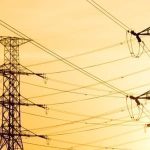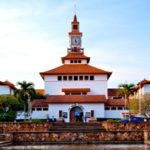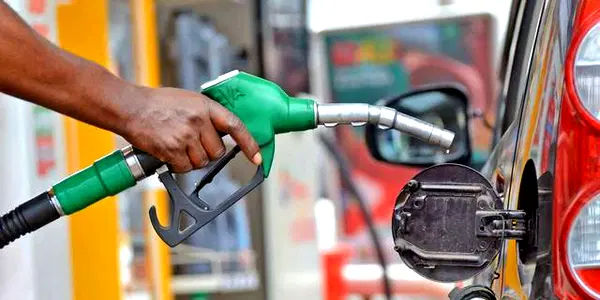A contentious move by Colombia’s first leftist President Gustavo Petro to end hydrocarbon exploration in the strife-torn Latin American country has exposed one of the domestic oil industry’s long hidden secrets of a crumbling social license.
After a series of world-class onshore oil discoveries during the 1980s and 1990s petroleum became an important economic driver. During the early 2000s, Colombia’s slumbering oil boom again roared to life as President Alvaro Uribe promoted the hydrocarbon sector’s development to maximize the economic windfall from petroleum. As a result, Colombia’s oil industry assumes a crucial role in the economic miracle that materialized as the Andean country emerged from decades of civil war and cocaine fueled violence.
A dearth of proven oil and natural gas reserves did not hold Colombia back. During 2013 production peaked at just over one million barrels per day making the Andean country the fourth largest producer in Latin America. While output has declined sharply since then, with government data showing that production fell to a daily average of 754,199 barrels during 2022, Colombia is now Latin America’s third largest oil producer due to Venezuela’s petroleum output collapsing under the immense pressure of strict U.S. sanctions. Data from government statistical agency DANE shows by 2013 that crude oil was responsible for over half of Colombia’s exports by value, 20% of government revenue and 4.5% of gross domestic product. That highlights just how central black gold was to Colombia’s economic miracle during the 2000s which saw it possess one of the fastest growing economies in Latin America.
This, however, came at a price with Bogota and industry participants turning a blind eye to the impact of industry operations on local communities. Colombia’s oil industry is responsible for considerable environmental damage, with many such incidents obscured from public scrutiny. That is one of the reasons leftist guerillas, the now demobilized Revolutionary Armed Forces of Colombia (FARC – Spanish initials) and the National Liberation Army (ELN – Spanish initials) considered energy infrastructure to be a legitimate target in their struggle against the state. By the early 2000s extortion of oil companies and kidnapping of industry workers had become an extremely lucrative source of income for guerillas, while attacks on pipelines, wellheads and other hydrocarbon infrastructure was common.
In around two decades, the strife-torn South American country became economically dependent on crude oil and the tremendous profits black gold generates. Bogota’s ruthless pursuit of expanding petroleum exploration and development eventually allowed Colombia to emerge as the third-largest oil producer in Latin America as strict U.S. sanctions crushed Venezuela’s petroleum industry. The dependence on crude oil is responsible for considerable environmental fallout and significant community dissent. Oil spills and other incidents became common place, especially as leftist guerillas stepped up attacks on industry infrastructure, notably pipelines, while some drillers demonstrated little regard for the environment. This is responsible for a high incidence of spills, with at least 139 such events occurring between 2011 and 2021, inflaming tensions with communities in the region’s where the industry operates.
There are allegations that many local communities were coerced into approving petroleum projects along with claims that drillers and the national government have failed to deliver the infrastructure, payments and services pledged during negotiations. This is responsible for fanning dissent in the areas where the oil industry operates with most being remote regions with a weak government presence and a dearth of crucial hard and soft infrastructure including roads, schools and health facilities. There is also consternation regarding the alleged collusion of Colombia’s armed forces and right-wing paramilitary groups with industry actors to quell community dissent. It is for these reasons that relations between various community groups, drillers and the national government are strained and explains why road blockades, oilfield invasions and violent community protests are frequent events in regions where the industry operates.
These factors indicate that there is no easy solution to resolving community tensions and Colombia’s economic dependence on crude oil. In fact, despite the economic contribution of petroleum declining over the last decade the industry was responsible for 2.6% of Colombia’s GDP during 2022 as well as a third of exports and almost a fifth of government revenue, demonstrating oil still plays a decisive economic role. That will only expand, despite Petro’s pledge to end awarding hydrocarbon exploration contracts, because of the November 2022 tax hikes. Those reforms saw the application of an incremental tax on the proceed of oil sales when the Brent price exceeds set values and removing royalty payments as an income tax deduction. When coupled with additional tax reforms including a higher levy on dividend payments and the introduction of a wealth tax, Bogota expects to generate an additional $4 billion in fiscal revenue at a time when budget deficits are spiraling higher.
Ending hydrocarbon exploration will threaten Colombia’s energy self-sufficiency and challenge the country’s energy security. There are fears that this will see Colombia’s hydrocarbon reserves exhausted in a decade and that oil production will fall by 30% over that period. Such a sharp decline will force Colombia to significantly increase the importation of oil, natural gas and related products, primarily gasoline, diesel and liquified natural gas to meet domestic energy needs. A natural gas shortage is already impacting Colombia. The severity of those supply constraints is highlighted by the Colombian Association of Gas Marketers (AGREMGAS – Spanish initials) estimating liquified petroleum gas imports needed to quadruple during 2022 to meet booming domestic demand as supply constraints became more pronounced.
Any substantial increase in hydrocarbon imports will place significant pressure on Colombia’s fiscally fragile economy which is highly reliant upon the financial contribution of the hydrocarbon sector. There is also the potential to trigger an energy crisis, especially when it is considered that the Colombian Petroleum Association (ACP – Spanish initials) believes the Andean country’s hydrocarbon reserves will be exhausted in a decade if oil exploration is banned. Petro’s plan to import natural gas from neighboring Venezuela, to cover at least a supply shortfall, appears unachievable despite securing a deal with the OPEC member’s national oil company PDVSA to export the fuel to Colombia. A combination of corroded pipeline infrastructure, a lack of capital and U.S. sanctions all make it extremely difficult for PDVSA to deliver the 50 million cubic feet per promised.
Colombia’s president and his energy minister recently expressed their commitment to ending oil exploration and transitioning the country to a greener less oil dependent economy. While the fallout for Colombia from such an event could be severe, it will be offset by Petro’s guarantee that his administration will respect existing industry agreements, thereby allowing industry participants to confidently continue with their operations. Such a decision still poses grievous risks to Colombia’s already fragile economy by significantly shrinking exports and government revenue. That will squeeze Bogota’s finances at a crucial time when the economy is facing considerable uncertainty and runaway inflation, which will be magnified by the peso tumbling as the value of exports plunge.
















